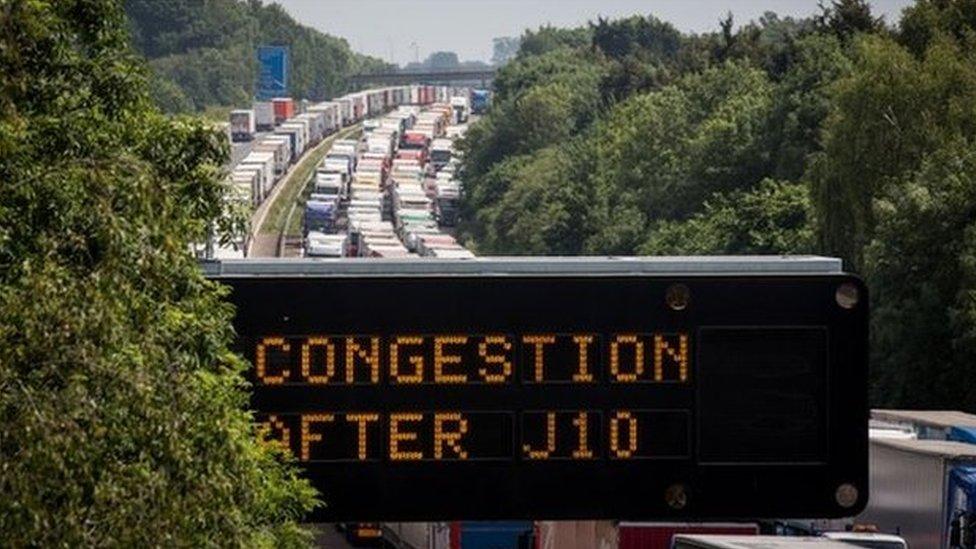Operation Brock 'lorry park' on M20 'could last years'
- Published
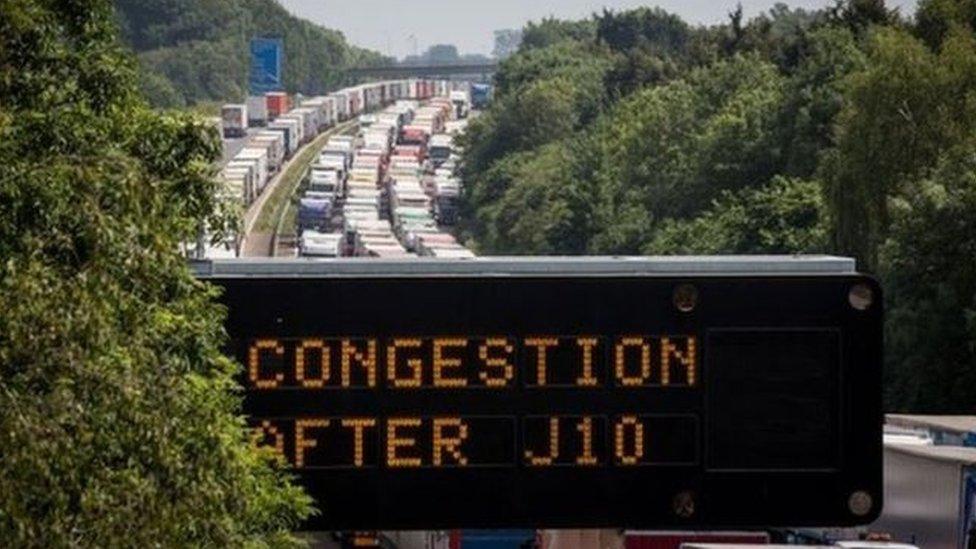
More than 10,000 freight vehicles pass through Dover on peak days
A giant 13-mile "lorry park" on the M20 could last for years if there is a no-deal Brexit, a council has warned.
An assessment by Dover council has expressed concern over how ports would cope with the potential situation.
The document is critical of the slow pace of work on a "temporary" scheme, named Operation Brock, and said "there does not appear to be a Plan B".
A government spokesman said it was working with "a range of partners on contingency plans".
Operation Stack is currently used on closed sections of the M20 in Kent, where lorries park while waiting to cross the English Channel when traffic is disrupted.
The new strategy, Operation Brock, plans to use a contraflow to keep the roads open when problems arise.
The Dover council report stated: "A 13-mile stretch of the coast-bound section of the M20, between junction eight near Maidstone and junction nine near Ashford, will be earmarked to hold heavy goods vehicles, in what will effectively become a giant temporary lorry park holding around 2,000 lorries.
"It is likely a permanent solution will not be in place for many years if enacted through current planning processes and procedures."
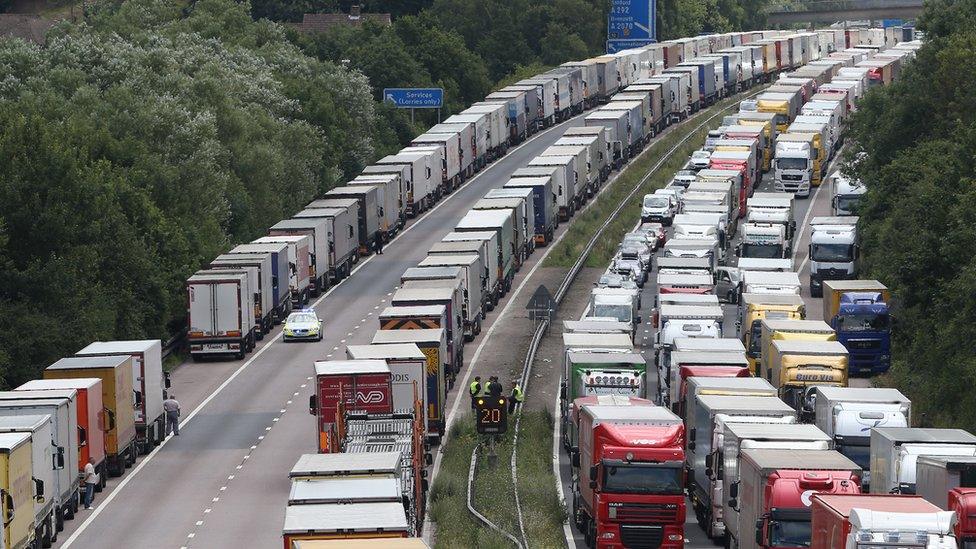
Severe traffic problems in the past have seen queues stretch back 30 miles
The report, released under a Freedom of Information request, said "there could be gridlock around the town" if Brexit "ends up creating regulatory and tariff barriers between the UK and the EU".
"Customs checks on imports from outside the common market can take between five minutes to 45 minutes per vehicle," it added.
"Port officials have warned that increasing the average time it takes to clear customs by as little as two minutes could lead to 17-mile traffic jams."
A government spokesman said: "As the prime minister has set out, after Brexit we will not only seek to forge new trade relationships with partners around the world but also maintain frictionless trade in goods between the UK and EU.
"While we remain confident of reaching an agreement with the EU to achieve this, it is only sensible to prepare for a range of scenarios.
'Dire consequences'
"That is why the Department for Transport is working closely with a range of partners on contingency plans to ensure freight can continue to move as freely as possible between the UK and Europe."
The spokesman also insisted that work on Operation Brock would have taken place regardless of Brexit to improve contingency arrangements for a range of scenarios which could result in cross-Channel disruption.
Highways England said it recently consulted on a permanent solution and is considering responses.
In the meantime, it said Operation Brock would create up to 2,000 on-road lorry holding spaces between junctions 8 and 9 on the M20.
It said it would offer "significant benefit" compared to Operation Stack, as it would keep traffic flowing in both directions.
Deployment of the temporary solution is planned for a maximum duration of up to six months, it added.
Conservative MP for Dover Charlie Elphicke tweeted, external that the report underlined the case for investment in border infrastructure and roads.
He added: "The government has not done enough to prepare in the two years since the EU referendum."
Kent County Council set out its position on preparations for Brexit earlier this month.
It warned that any increased border and customs checks could lead to delays and long queues of port freight traffic.
It added: "We need to avoid the dire consequences experienced in 2015 which impacted on the Kent economy and and more broadly on the national economy."
It said there needed to be a "robust, workable implementation plan that utilises all available resources" and urged the government to consider making further resources available.
Additional powers in legislation should also be considered, it added, to ensure that all agencies have the necessary authority to take action to ensure the free-flow of traffic.
More than 10,000 freight vehicles pass through Dover on peak days as it handles one sixth of the UK's total trade in goods with a value of £119bn per year.
In 2015, queues of 4,600 lorries stretched back 30 miles and the daily cost to the UK economy was estimated at £250m.
- Published30 July 2018
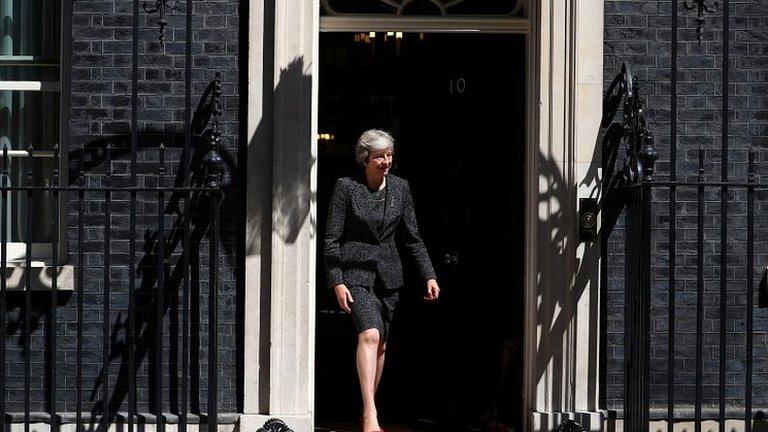
- Published26 July 2018

- Published19 July 2018
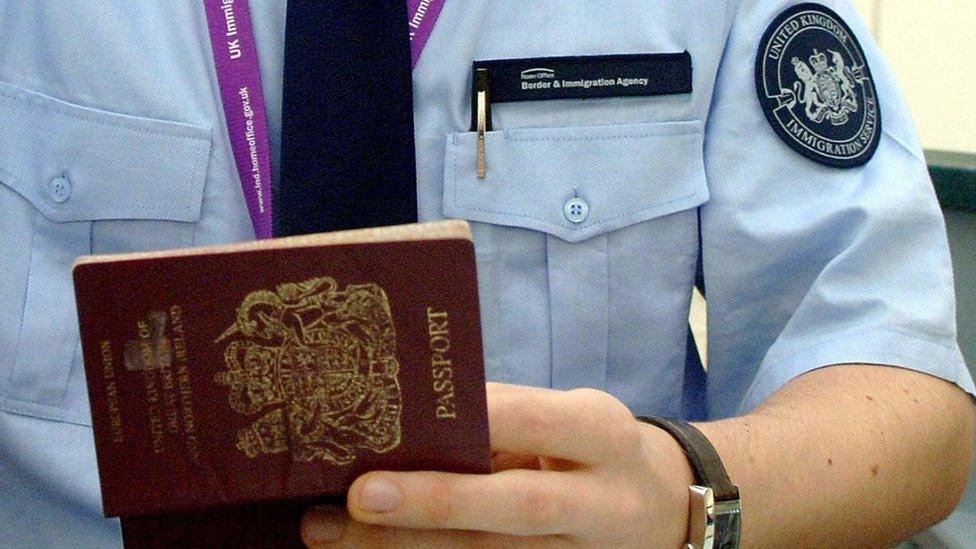
- Published18 May 2018
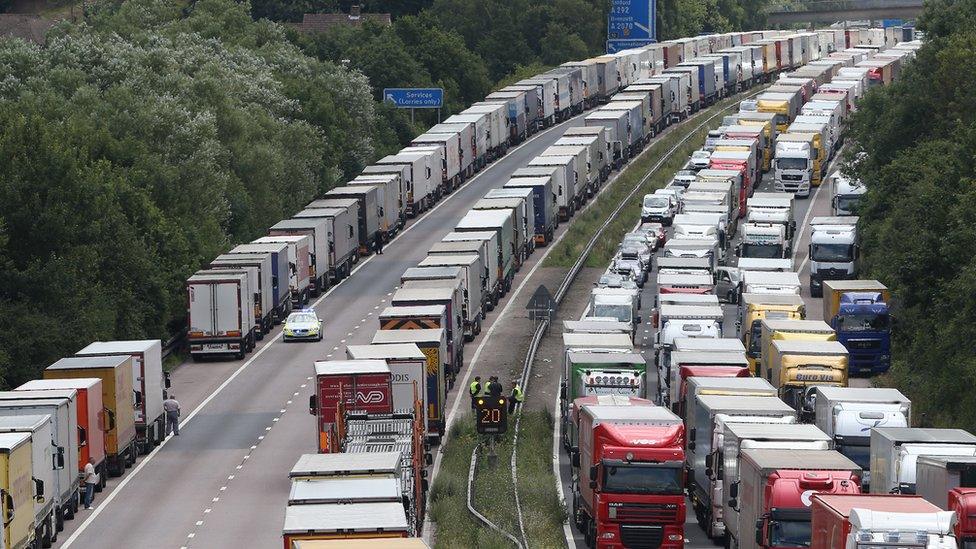
- Published12 March 2018
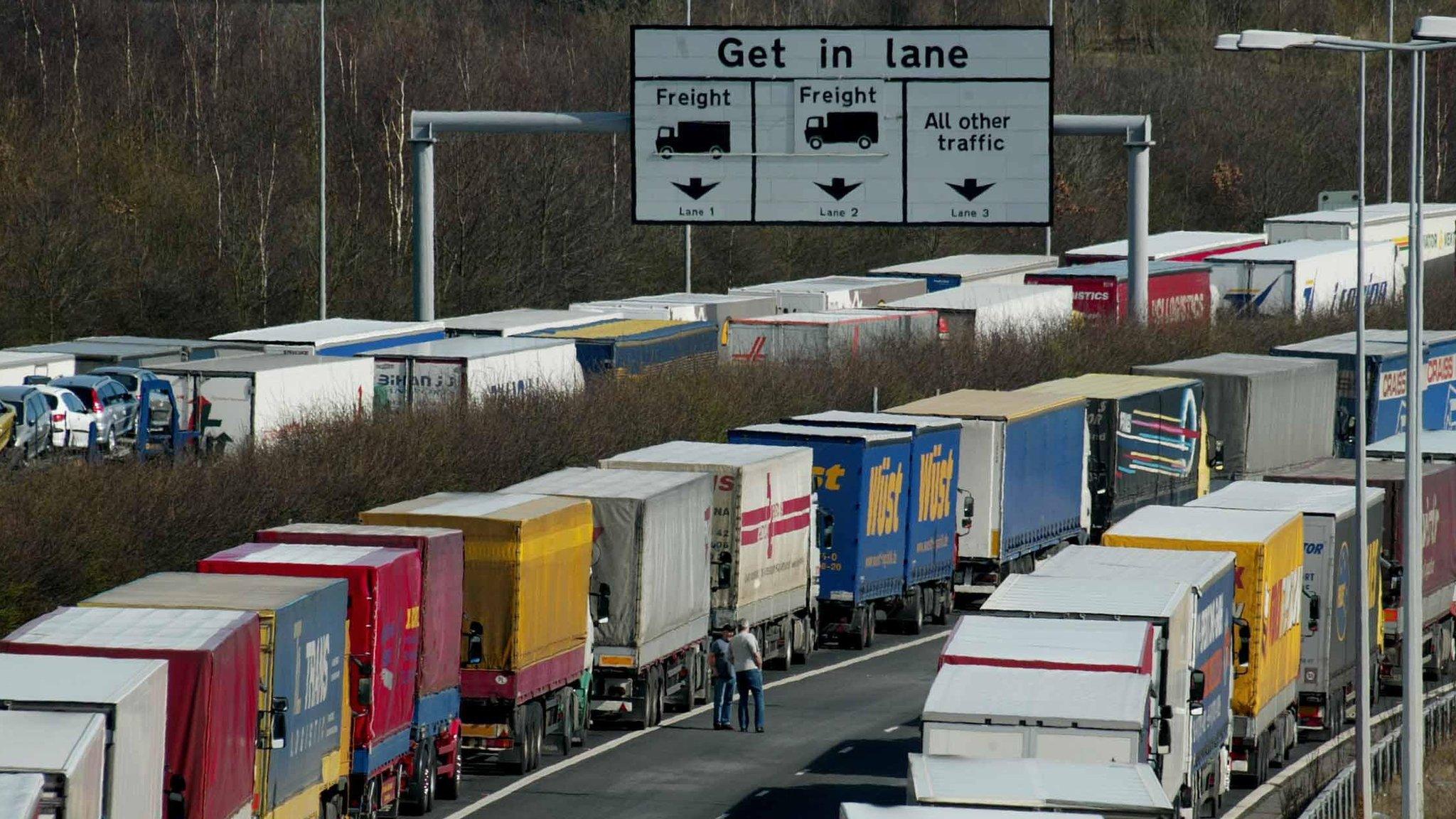
- Published19 December 2017
